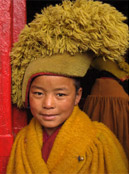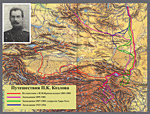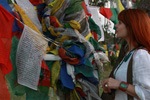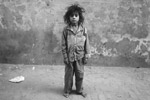Sikyong Announces Five-Fifty Strategy for Second Term
Sikyong Dr Lobsang Sangay today proposed a strategy of five-fifty in his inaugural speech at the swearing-in ceremony for his second term of office, at the Tsuglagkhang in Dharamshala.
The five-fifty strategy calls for a renewed effort in the Tibetan people’s struggle to seek genuine autonomy in the next five years while strategising to strengthen and sustain the Tibetan movement over the next fifty years.
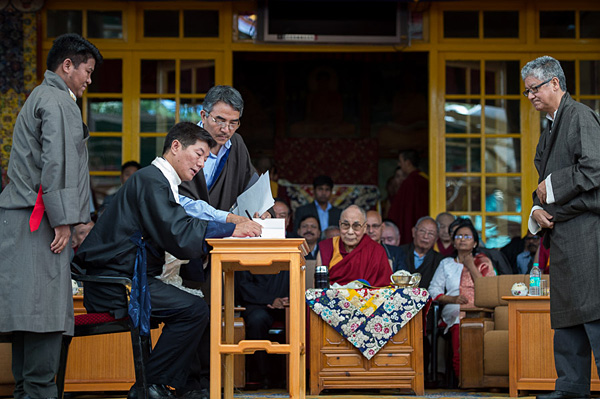
His Holiness the Dalai Lama looks on as Sikyong Dr Lobsang Sangay signs the official book
as part of the Sikyong Swearing-in Ceremony held at the Main Tibetan Temple courtyard
in Dharamsala, HP, India on May 27, 2016. Photo/Tenzin Choejor
“His Holiness the Dalai Lama has time and again advised us to hope for the best and prepare for the worst. Therefore, I had proposed this strategy of five-fifty,” Sikyong said in his speech, in front of over two thousand guests and Tibetan public.
“In the next five years, it is clear that we must put maximum efforts in achieving genuine autonomy for all Tibetans based on the Middle Way Approach. However, in case we remain in exile and have to continue our struggle for many years, we need to strategise in order to strengthen and sustain our cause for the next 50 years,” he explained.
“We have to protect and preserve our unique Tibetan identity and tradition. We need to build self-reliance in the Tibetan world, in both education and economy,” Sikyong added.
“Five-Fifty is a strategy for success because we can either achieve genuine autonomy in the next five years or China will gradually change for the better in the next fifty years,” Sikyong said, explaining that if Tibetans are able to survive, strengthen and sustain the Tibetan administration in the next 50 years, it will be able to restore basic freedom of the Tibetan people owing to the change that will definitely take place in China.
To make the strategy a success, Sikyong said the 15th Kashag would make efforts in the international forum and in India as well as among Tibetans to create awareness about the Middle Way Approach.
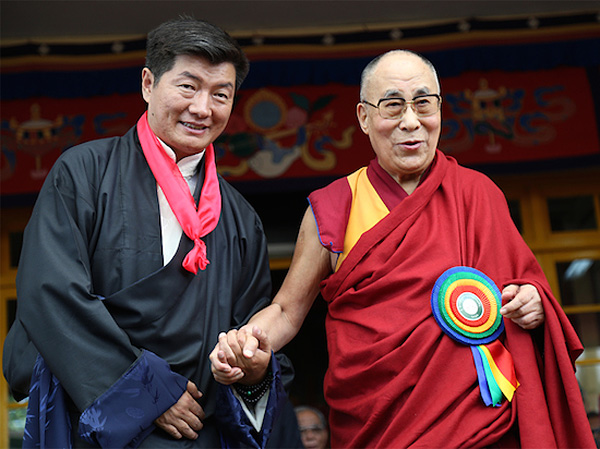
Sikyong Dr Lobsang Sangay with His Holiness the Dalai Lama at the swearing-in ceremony, 27 May 2016
Sikyong also paid tributes to the sacrifices of the Tibetans inside Tibet including the Tibetan self-immolaters. “Their sacrifices will not go in vain. I stand in solidarity with and express my sincere appreciation for the patriotic fervour that continues to burn in Tibet in all Tibetan hearts particularly the monastics, the scholars and writers, the teachers and students, the singers, the farmers and the nomads,” he said.
Sikyong further reaffirmed Middle Way Approach as the official policy of the 15th Kashag to resolve the Tibet issue. “The Middle Way Policy as envisioned by His Holiness the Dalai Lama and adopted unanimously as a policy by the Tibetan Parliament-in-Exile will continue to be the official policy. We are committed to make efforts towards the holding of talks between the envoys of His Holiness the Dalai Lama and the representatives of the Chinese government and resolve the issue of Tibet peacefully during His Holiness the Dalai Lama’s lifetime”, Sikyong announced.
Sikyong Dr Lobsang Sangay has led the Tibetan political administration since his election as the Kalon Tripa in 2011 when His Holiness the Dalai Lama devolved all his political authority. In the recently concluded Tibetan general election, Dr Sangay got a total of 33,876 votes (57.08 %) of the total votes polled.
Brief Biography:
Dr Lobsang Sangay was born and grew up in a Tibetan settlement near Darjeeling, where he attended the Central School for Tibetans. He completed his B.A. (Honors) and LLB degrees from Delhi University. In 1992, he was elected as the youngest executive member of the Tibetan Youth Congress (CENTREX). In 1996, as a Fulbright Scholar, he obtained Masters degree and in 2004, S.J.D, the first Tibetan ever to receive such a degree from Harvard Law School and his dissertation, Democracy in Distress: Is Exile Polity a Remedy? A Case Study of Tibet’s Government-in-exile was awarded the Yong K. Kim’ 95 Prize. In 2005, he was appointed as a research fellow and promoted to senior fellow till early 2011.
Dr Sangay is an expert on International Human Rights Law, Democratic Constitutionalism, and Conflict Resolution. He has spoken in hundreds of seminars around the world. He has organised seven major conferences among Chinese, Tibetan, Indian and Western scholars including two unprecedented meetings between His Holiness the Dalai Lama and Chinese scholars in 2003 and 2009 at Harvard University. In 2007, he was selected as one of the twenty-four Young Leaders of Asia by the Asia Society and a delegate to the World Justice Forum in Vienna, Austria, where top legal experts and judges from around the world congregated.
In 2011, he was elected to the post of Kalon Tripa in an unprecedented competitive democratic election in the Tibetan diaspora. On August 8, 2011, during the swearing–in ceremony of the Kalon Tripa, His Holiness the Dalai Lama said, “When I was young, an elderly regent Takdrag Rinpoche handed over Sikyong (political leadership) to me, and today I am handing over Sikyong to young Lobsang Sangay… In doing this I have fulfilled my long-cherished goal.” He was re-elected as Sikyong for a second term in 2016 after the final round of election was held on 20 March.
May 27, 2016. Dharamsala, H.P., India.
By:
tibet.net
![]()
![]()
![]()
![]()
